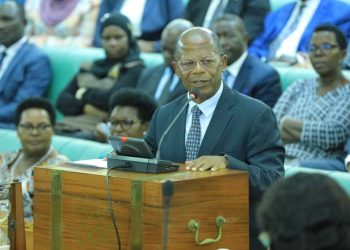The Government has issued new guidelines for nominal ground rent charges, commonly known as busuulu payable by land tenants in rural and urban areas across the country. Under the new guidelines, landlords, who own land in rural areas are required to charge busuulu not exceeding sh5,000 peryear.
According to the lands minister, Betty Amongi, for urban centers, landlords should not charge busuulu exceeding sh20,000 annually. The detailed guidelines for Busuulu, Amongi added, will be released today. “For villages, the busuulu should not exceed sh5,000 and for urban centres, itshould be between sh10,000 and sh20,000, depending on what the district land board decides,” she told New Vision yesterday.
The Government’s response has come against the backdrop of rampant massive evictions across the country. Recent inquiries into land evictions, including the Justice Catherine Bamugemereire-led commission of inquiry into land matters, established that landlords are charging tenants more than sh40,000 annually as busuulu, a move that has complicated life for tenants. The Land Act had initially set busuulu at sh1,000.
But the revised Land (Amendment) Act, 2010 adjusted the ground nominal rent from sh1,000, which many landlords had previously protested as too little. However, the lawmakers did not provide for a fixed nominal ground rent figure.
Instead the law gave powers to the minister under Section 31 of the Land Act, to determine the fee where district land boards fail to meet the expectations of the tenants. In his address to squatters of Wabinyira at Nakwaya Secondary School, in Nakwaya parish, Kikandwa sub-county, on Tuesday this week, President Yoweri Museveni said the busuulu was just a sign of respect from tenants to the landlords.
“Busuulu should just be token rent to show respect. Busuulu is like a salute that soldiers give me whenever I meet them. It has no monetary value, but they salute me to show respect. The same gesture should be equated to busuulu. It used to be sh1,000, and I think it should not be much but remain as a sign of respect,” Museveni said.
He warned landlords to stop evicting bibanja owners (squatters) unlawfully.
“I have come here to tell whoever is evicting people to stop. We handled land in a mature way when we came. Idi Amin had banned ownership of land, but when we came we realised that Amin used a decree without negotiating with anyone,” he added.
Museveni also warned landlords to stop being arrogant.
“They have come back now thinking they can mistreat our people in our presence. Noway; this arrogance must stop,” he said.
Museveni explained that there were four categories of people that the laws protect: lawful occupants, bonafide occupants, those who settle don land for 12 years without notice from the owner and the ones affected by adverse possession.
The President also pledged to deal directly with all government officials cited in land evictions. During his Tuesday tour of Mityana, Museveni also visited the family of the late Mzee Konia Ssewalu Ssalongo of Nakaziba in Kikandwa sub-county. Ssewalu was one of the people who helped in the struggle that brought NRM to power.
He pledged support to the family. What the law says Section 31 of the Land (Amendment) Act 2010 provides that
“where the board(district land board) has not determined the annual nominal ground rent payable by a tenant by occupancy within six months after the commencement of the Land(Amendment) Act 2010, the rent may be determined by the minister.”
The law defines the bonafide occupant as a person who before the coming into force of the 1995 Constitution, had occupied and utilized or developed any land unchallenged by the registered owner or agent of the registered owner for 12 years or more; or had been settled on land by the Government or an agent of the Government, which may include a local authority.
On the other hand, a lawful occupant is a person who occupies land by virtue of the repealed busuulu and Envujjo Law of 1928; Toro Landlord and Tenant Law of 1937; Ankole Landlord and Tenant Law of 1937.
A lawful occupant also means a person who settled on the land with the consent of the registered owner, and includes a purchaser. A lawful occupant further includes a person who had occupied land as a customary tenant but whose tenancy was not disclosed or compensated for by the registered owner at the time of acquiring the leasehold certificate of title.
The law provides that the lawful or bonafide occupants can only be evicted on an order issued by a court and only for non-payment of the annual nominal ground rent (busuulu).
When issuing the order, the court is required to state the date, being not less than six months after the date of the order, by which the person to be evicted shall vacate the land. It may also grant any other order as to expenses, damages, compensation or any other matter as the court thinks fit.





























































